Ocean expanses are so much more than just a postcard, which is why we’ve partnered with ocean conservation charity Blue Marine Foundation, whose work ranges from fighting overfishing to oyster restoration to seabird safeguarding, to help keep blue an uplifting holiday colour and encourage responsible tourism. We can all do our bit (often in luxury, too) so, in honour of World Oceans Day, here’s their advice on how to travel in ocean-saving style…
JERSEY: SNORKEL TRAILS
Safe-for-sealife adventuring
Jersey has surprisingly busy subterranean life: don a snorkel to see purple tangles of maerl beds, seagrass meadows, mystical kelp forests, kaleidoscopic reefs and a mesmerising array of over 3,000 underwater species.
Working with Société Jersiaise, Blue Marine has made it easy and eco-friendly to explore the depths with two self-guided snorkelling trails – the first of a network around the island. On the south-west coast Snorkel Portelet – in Jersey’s first fishing-free ‘no-take zone’ – has four routes named after anemones you’ll see along the way (strawberry, dahlia, beadlet, snakelocks). So, you may see the neon flicker of wrasse schools, spider crabs scuttling through gullies, oarweed habitats and some fine sandy bottoms.
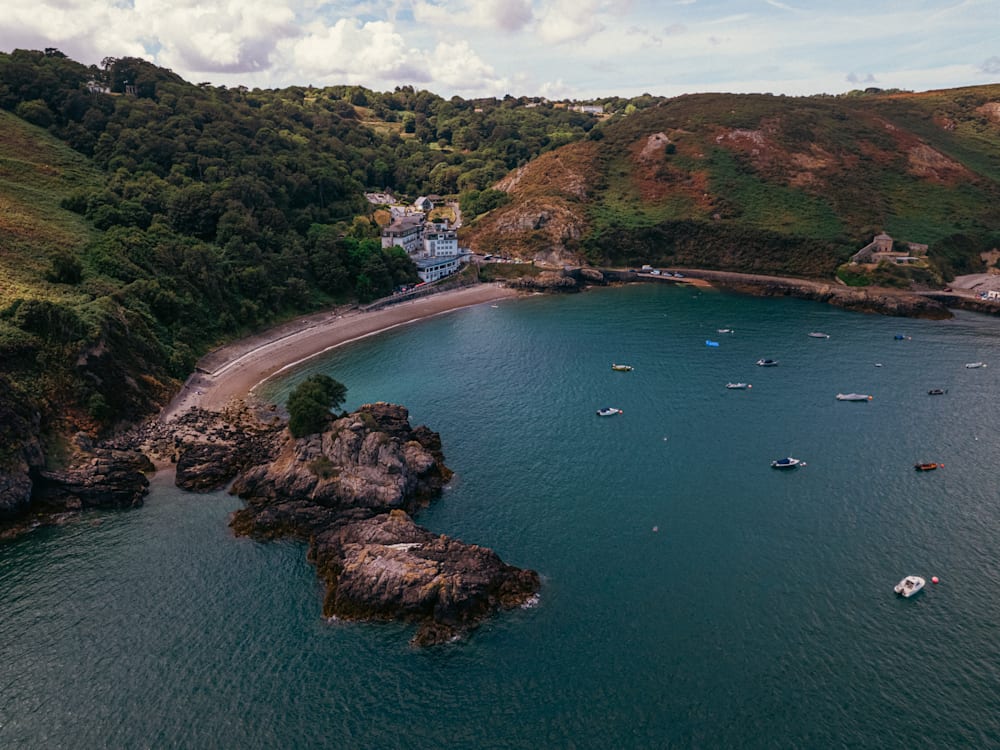
At Bouley Bay, the Snorkel Bouley trail has three routes revealing dinky seahorses and wispy pipefish, zebra-striped cuttlefish and ethereal rays sheltering amid the sea-bed flora. Both locations have maps and you can pick up checklists at both Portelet Bay Café or Bouley Bay Dive Centre (where you can also book a guided tour to both).
Where to stay For all the under-the-sea excitement, base yourself at the Moorings hotel (a 20-minute drive from Bouley bay and 40-minute drive from Portelet), and pair with a trip to northerly isle Alderney to stay at the Blonde Hedgehog, whose owner works to keep its rare namesake creature safe alongside other humanitarian initiatives.
UK: LYME BAY PROJECT
Get fish and chips with a conscience in Dorset
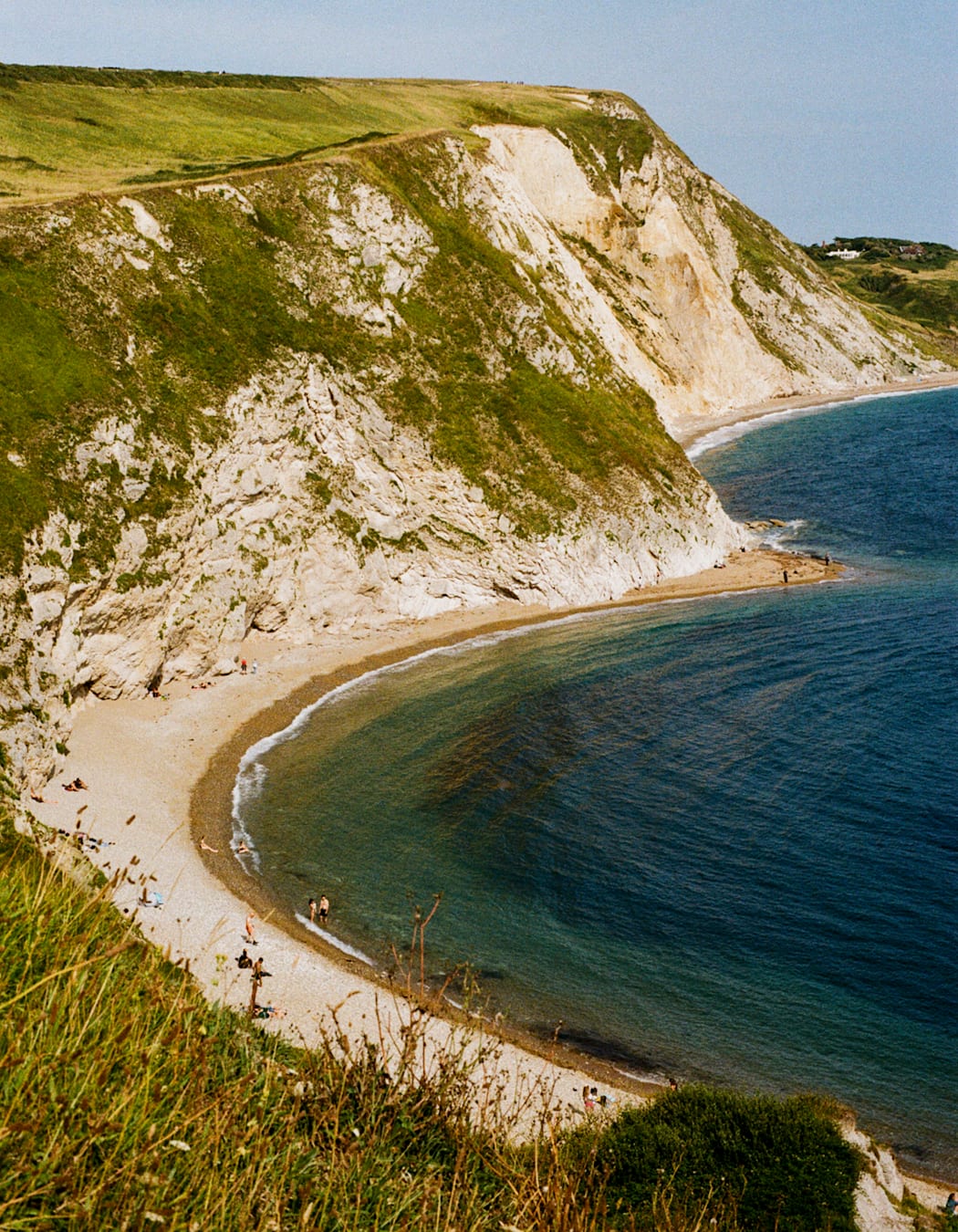
One of the UK’s great natural larders, Dorset does seaside-staple dining very well. Your cod might be battered, but little violence is done to the ecosystem, thanks to Blue Marine’s Lyme Bay project, where conservationists worked with local fishing communities to conceive sustainable initiatives for keeping small fisheries in business, protecting against dredging and trawling, and saving the UK’s largest colony of the most glamorous kind of coral: the pink sea fan.
As the UK’s largest Marine Protected Area (200km2), the Lyme Bay Reserve has been hugely important for generations of fishing families and is a rich vein of conservation research. Fisheries get scientific support and new equipment so they can work with greater awareness and whisk their catches to market (and your plate) in their freshest form – results have been buoyant, with a 52 per cent increase in the number of marine species since 2008 and more abundant catches across the board. If you’re thinking: this is all well and good, but can I eat it? Grab a plate, because clear-conscience chippies are abundant.
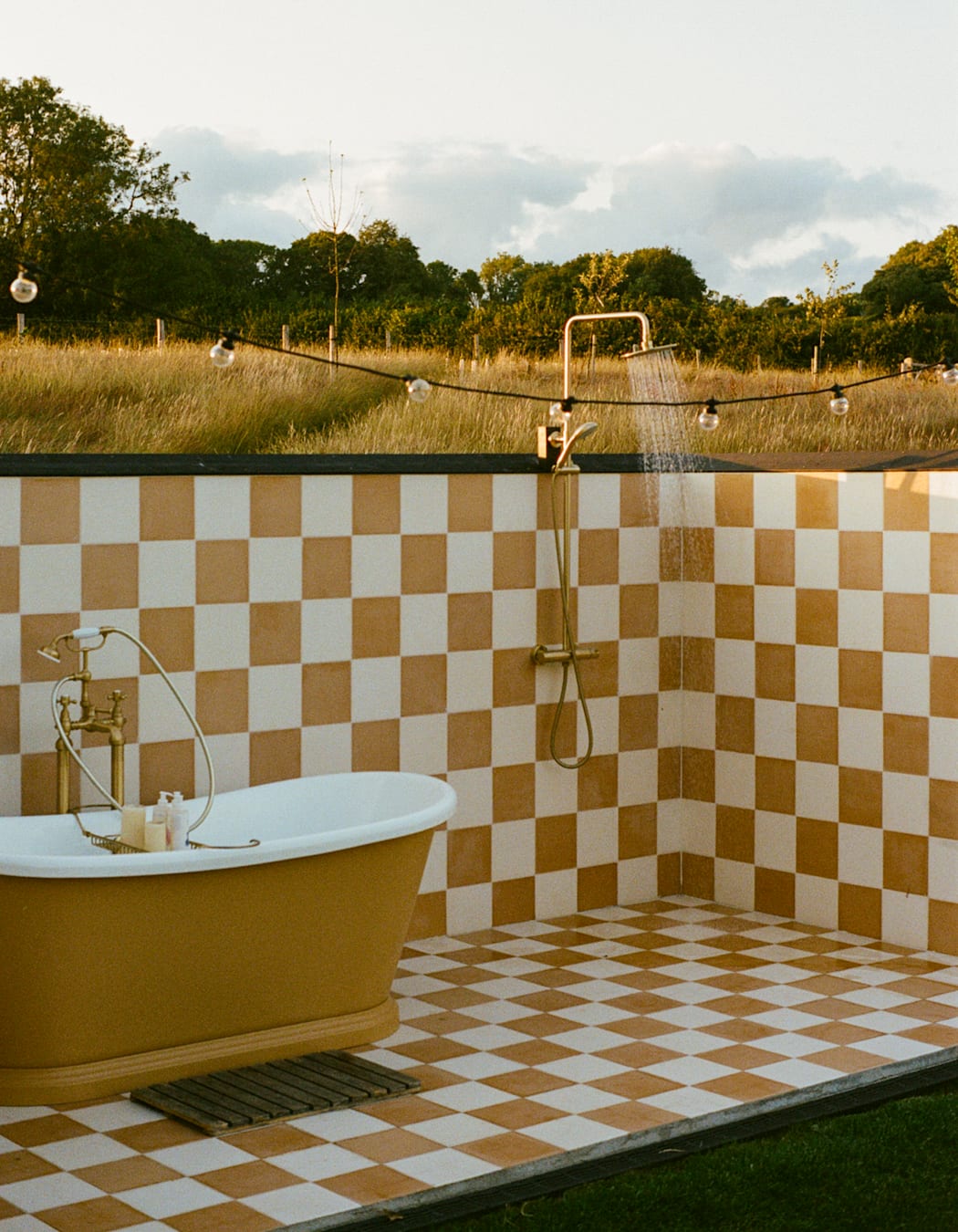
Where to stay Stay in Aller Dorset’s design-forward shepherd’s huts (with alfresco bath tubs), and you’ll have a fire pit barbecue for grilling up lobsters from Beer Fisheries, whole pollocks or gurnards from Lyme Bay Fish Shack or tilapia and red snapper from Just Fish. Head to Chesil Chippie (by the namesake beach) or Fish ’n’ Fritz in Weymouth to dine straight from a recyclable container, or check into Lympstone Manor for a more silver-service experience headed up by lauded-for-Earth-kindness chef Michael Caines.
ITALY: MARINE PROTECTED AREAS
Try protective pescatourism in the southern isles
With puppy-dog eyes, the whiskers of a kindly Victorian doctor and baby-like chub, the Mediterranean monk seal might be the most adorable thing to waddle out of the sea. However, they’re critically endangered, numbering just 700 in the world. But in protecting the Tuscan Archipelago National Park’s marine caves, which seals use as nurseries, Blue Marine gives you a better chance of – respectfully, from a distance – seeing more around in future.
The region’s 14,000 species of marine life are thriving too in protected areas, including Sicilian loggerhead turtles, whose seagrass habitats have been enriched, rays who are carefully monitored; and by using smart buoys to measure noise pollution from boats, the charity can advise on eco-friendly ways of diving to see sandbar sharks off the coast of Lampione Island.
At Sardinia’s southern tip, the charity has cleared ‘ghost gear’, decluttering Cape Carbonara’s popular dive sites, alive with unique coralligenous habitats, octopi, grouper, barracuda, sponges and more. And to protect the eerie luminous beauty of hundreds of submerged caves around Cape Caccia (including famous Grotta di Nereo), they’ve installed mooring lines around blooming corals to gently guide divers.
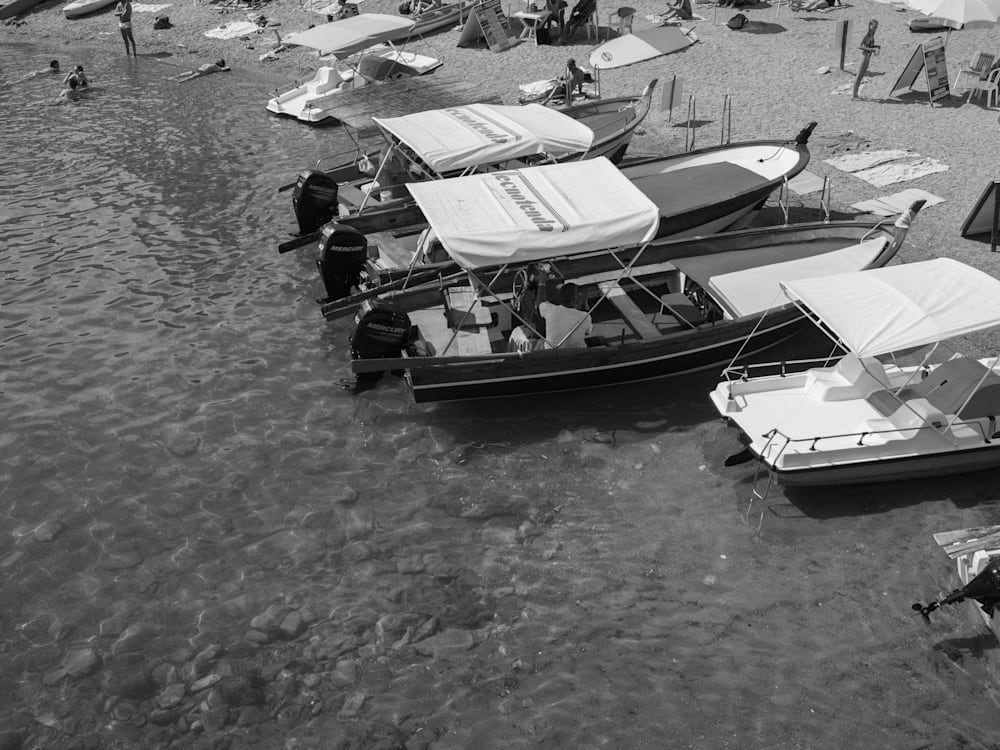
Where to stay See the island’s wonders sustainably from Le Dune Piscinas, a remote stay on the desert-like west coast where a marine biologist accompanies you to the best jumping-off points for the Med and Tyrrhenian for guided tours. Or Cascioni Eco Retreat lives up to its name by following time-honoured Galluran agricultural traditions. In Sicily, Monaci delle Terre Nere does its part too, from installing banks of solar panels to planting ‘lost’ wine varietals.
GREECE: PICK THE ALIEN PROJECT
Enjoy alt-fish dinners
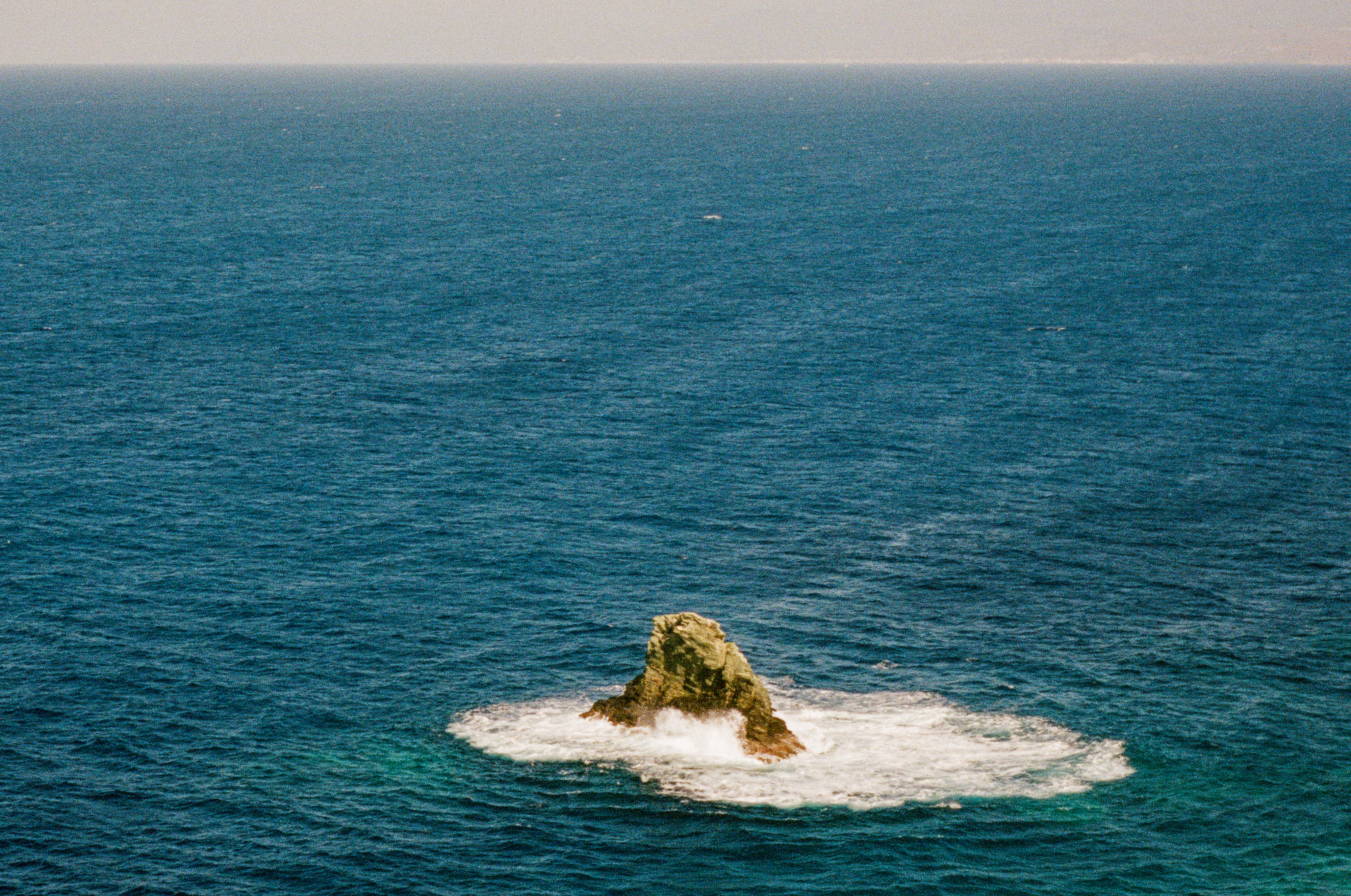
When dining against a backdrop of Aegean blue, it’s tempting to deplete sea stocks drastically over several courses, but with Blue Marine’s ‘pick the alien’ initiative, you could actually eat your way to saving the country’s sealife. A rule of thumb is to avoid apex predators who keep the ecosystem flowing and instead get stuck into invasive species; so bluefin tuna, swordfish and grouper might be off-menu, but lionfish, blue crab, rainbow trout, goatfish and other offbeat eats keep conservation appetising.
Greece wouldn’t let the gastronomic side down in any way, so chefs and restaurants have signed on to spread awareness in the best of ways, reaching our hearts through our stomachs. Say Zakynthian restaurant Prosilio’s fine-dining take (ethical tartare with finger-lime and tzatziki cream), let-the-fish-shine fare at Water of Love on Spetses, Crete’s Despina Taverna where the menu washes in with the tide (but likely has blue crab on it) or dutiful dining on the sand at Thalassamou in Paros, where lionfish is a speciality.
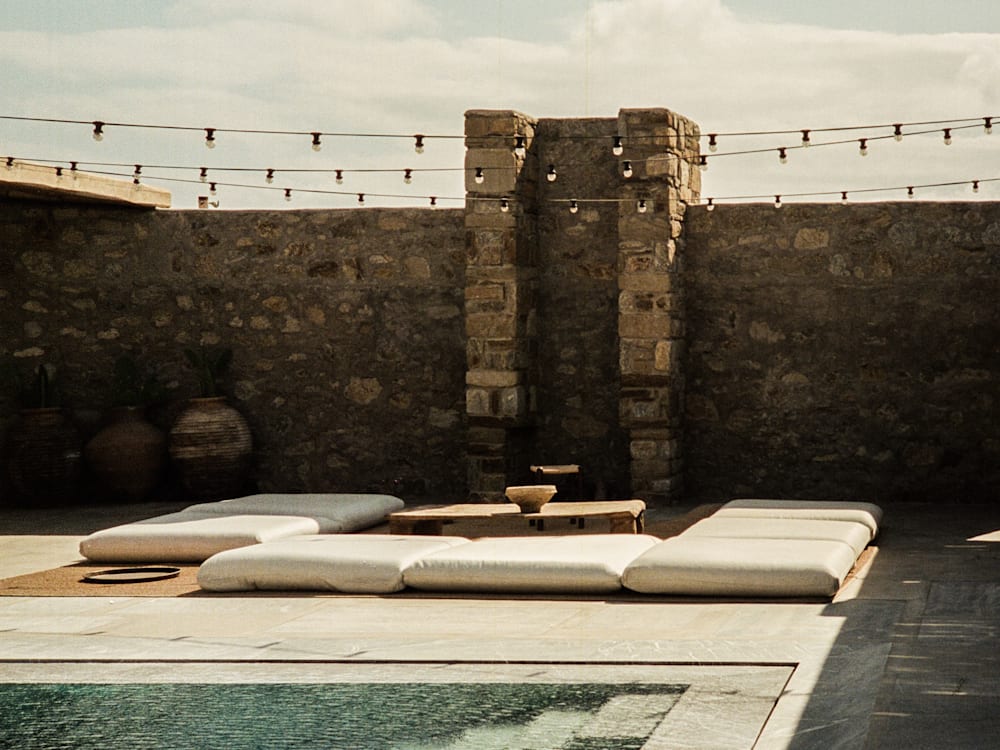
Where to stay When it comes to luxury hotels in Greece, it’s actually hard to find one where produce isn’t sourced from a very close distance if not their backyard. But some are more proactive on environmental measures than others, such as Nomad Mykonos with its heal-from-the-ground-up approach, the Rooster’s slow living or Cretan Malia Park’s awarded eco efforts. Or, spread the love back home, making spinefoot bruschetta or blue-crab tarama from Blue Marine’s Invading Your Kitchen recipes.
MALDIVES: EXEMPLARY FISHERS
Snooze among protected seagrass
Blue Marine have joined forces with luxury resort Six Senses Laamu in Olhuveli Island, a paradisiacal sandy speck in the neon waters of the Maldives’ Laamu Atoll.
The partnership is built on a joint love of conservation work, through which the charity and eco-minded hotel group have worked to save 830,000 square-metres of seagrass from being cleared for swimming spots; founded the Laamaseelu Masveriyaa (‘exemplary fisher’ in Dhivehi) project, helping local fishers to implement more non-destructive, sustainable methods and purchasing fish for the four on-site restaurants (from casual pizza joints to Japanese diners) at a competitive price. Which, in turn, safeguards beauty-spot reefs.
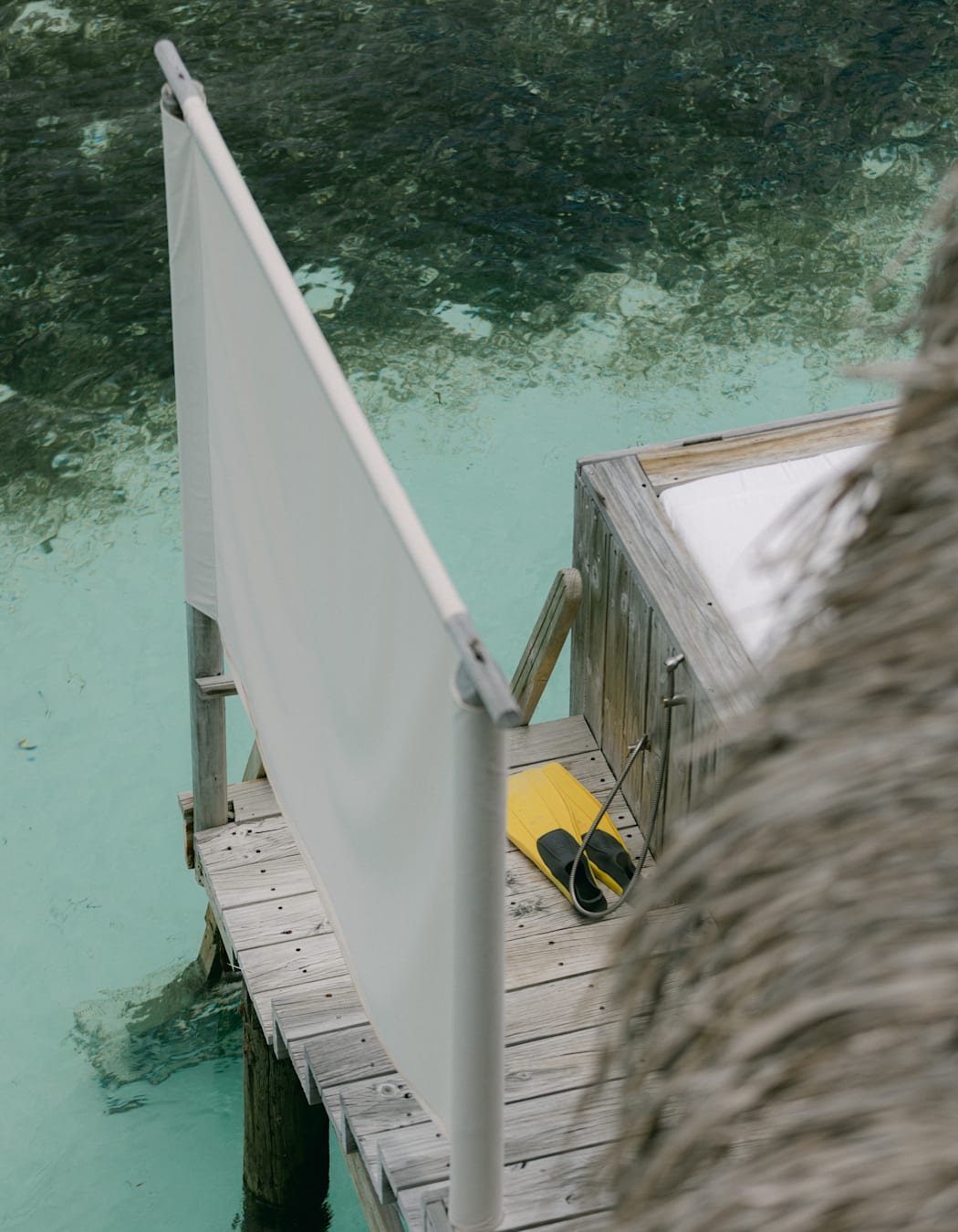
All this work has led to the whole atoll being designated a Mission Blue Hope Spot and six new areas earmarked for protection. And it’s the site of the Maldives’ first Community Conserved Area, a sort of service stop for marine life, paid for by tourism fees, complete with a manta ray cleaning station, turtle resting area and grouper spawning programme. This kind of conservation goes all the way down to the seagrass roots, not only prizing the locals’ knowledge and using it to improve efforts, but creating education and job opportunities too.
Guests can also learn – in a fun immersive way – at the vast, stylish Sea Hub of Environmental Learning in Laamu (SHELL, home of the Maldives Underwater Initiative), where there are interactive exhibits, talks, panoramic views and researchers studying on-site.
You can also get involved at the resort’s Earth Lab, but you’re giving the planet a little gift if all you do is check-in, laze on the beach then check-out as 0.5 per cent of profits goes towards the hotel’s sustainability fund, for initiatives such as providing water-filtration systems to schools and government facilities and other outreach works.
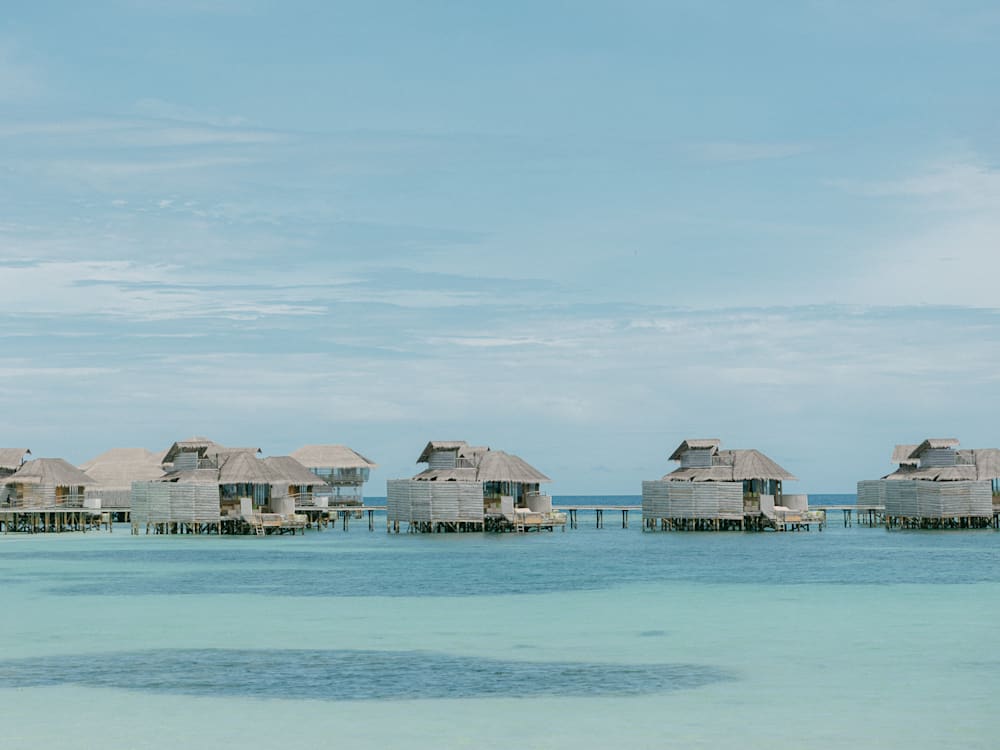
Where to stay See all the shades of blue from a Laamu Water Villa, one with a private pool and water garden if you want to wallow in it all.
More splash-making water-saving stays…
Boardwalk Boutique Hotel Aruba lays out guidelines for its guests on how to treat the beach and marine life respectfully, engaging them in beach clean-ups too. Other initiatives include donating to local food banks and walking (or even adopting) a local stray.
Lefay Resort & Spa, Lake Garda Storing rainwater, filling up pools based on usage and bathrooms designed to save up to 50 per cent of water consumption are the ways in which this hotel extends its holistic philosophy to the environment.
Gaia Riverlodge, Belize When you’re looking out over the Five Sisters waterfalls, you gain a new respect for water’s power, which is felt keenly at this stay which has a clean hydropower system and uses storm water to nourish their organic gardens.
The Brando, French Polynesia Marlon Brando may never have realised his alleged dream of providing his private island with electricity using electric eels, but it was his forward-thinking that gave it the high-tech seawater air-conditioning system it has today.
La Sultana Oualidia, Morocco Set by the surf-happy west coast, all water is recycled at this Earth-kind hideaway, which also supports local communities (especially women) keeps the surroundings rigorously cleaned and is diligent with carbon-offsetting.
Explore the full collection of our most sustainable stays
Photo of Bouley Bay in Jersey by Matt Jarvis.

